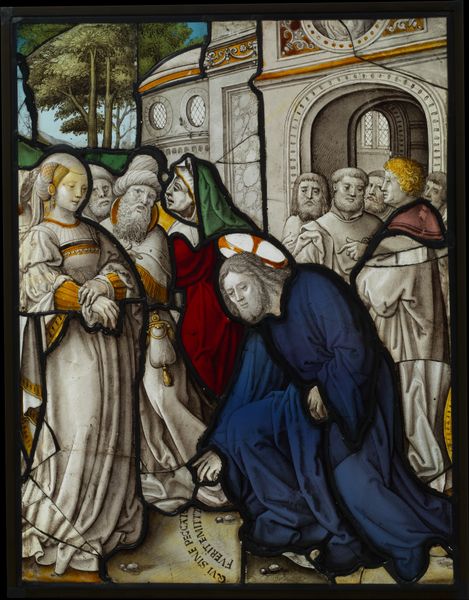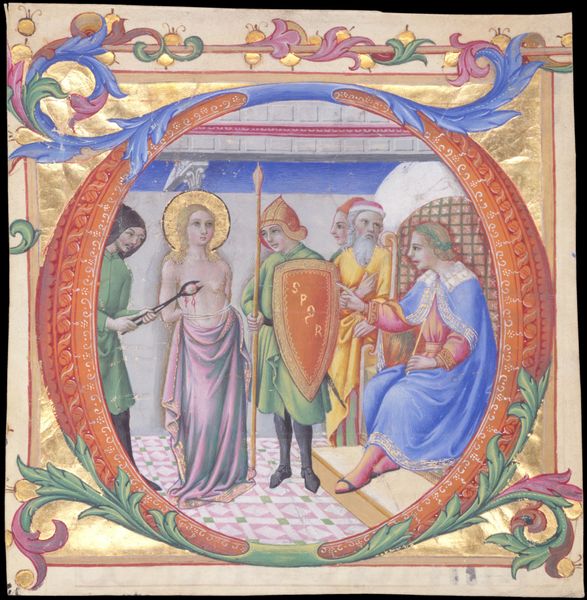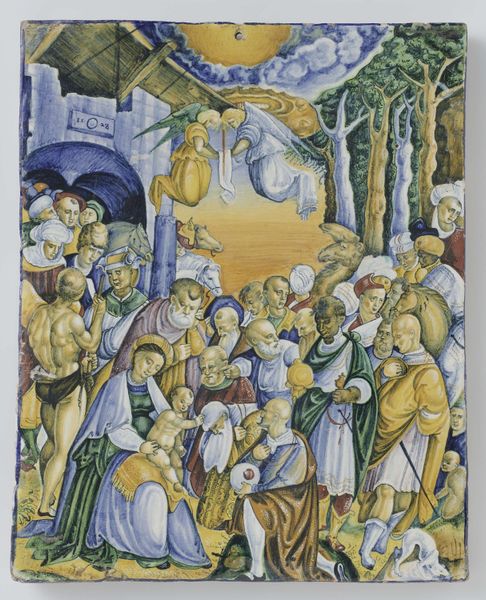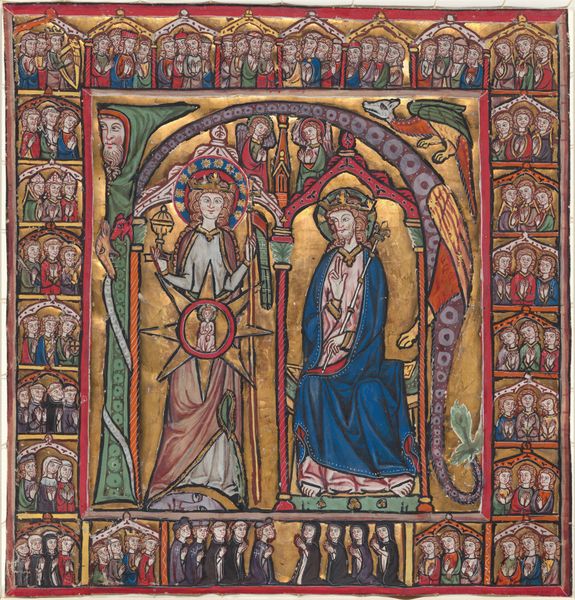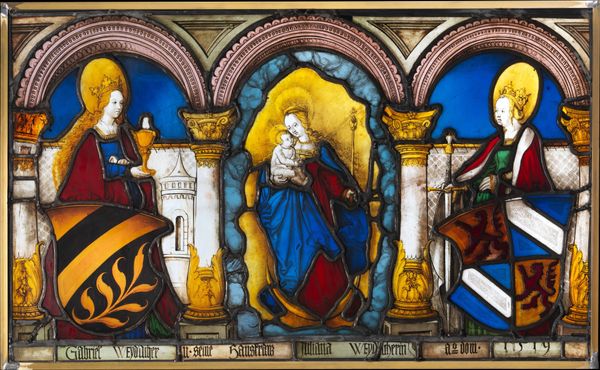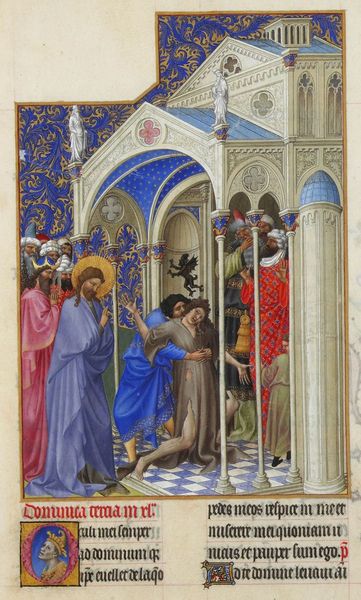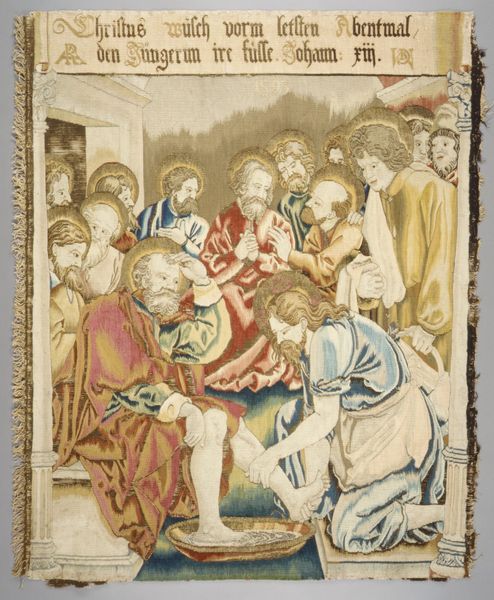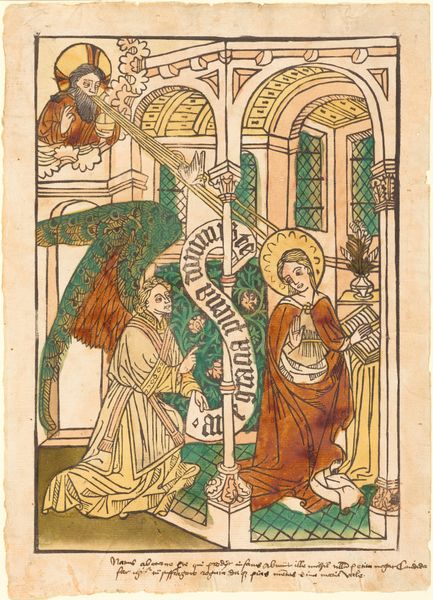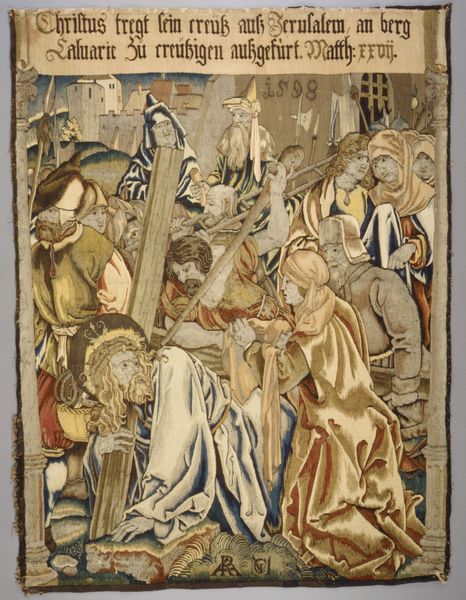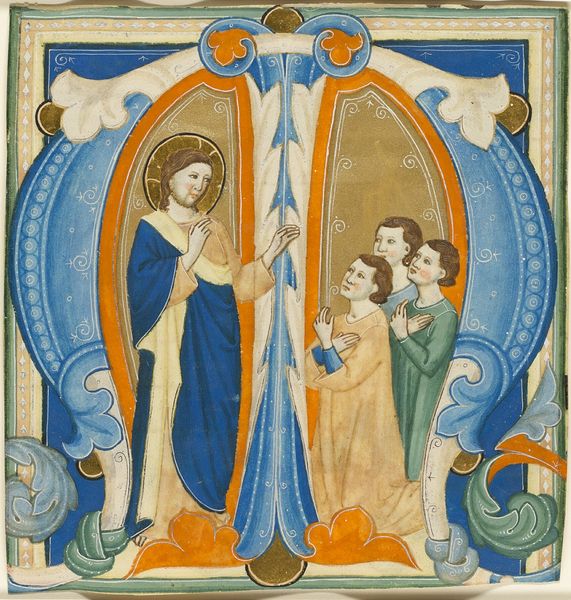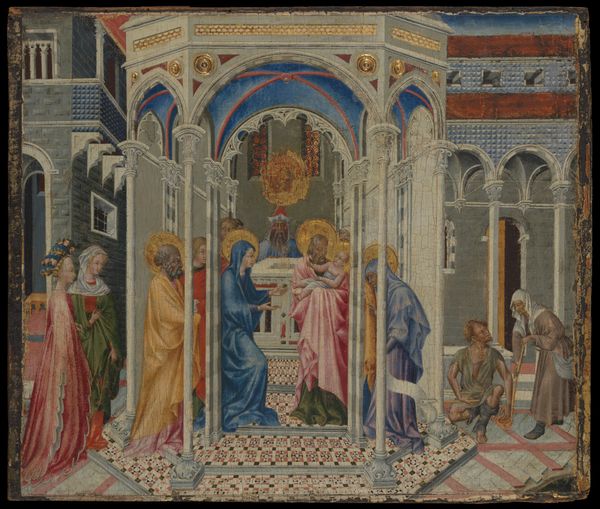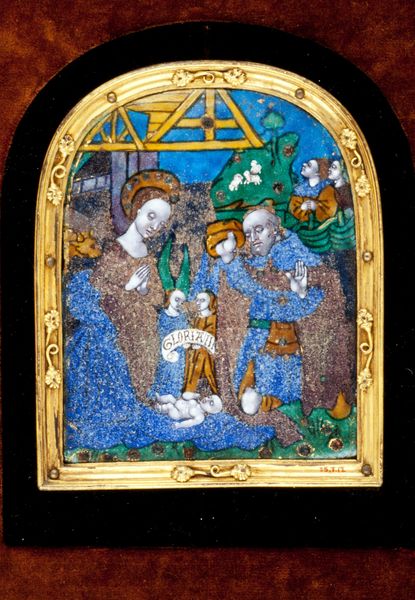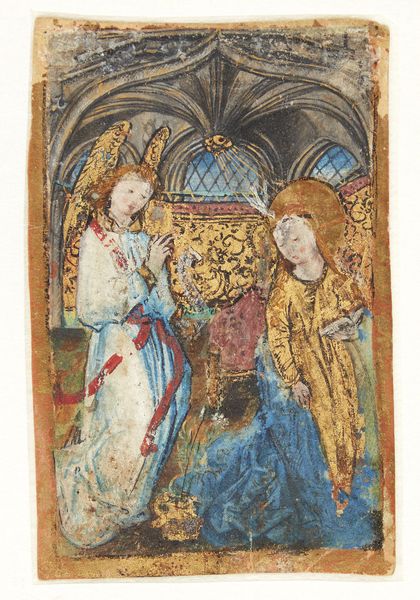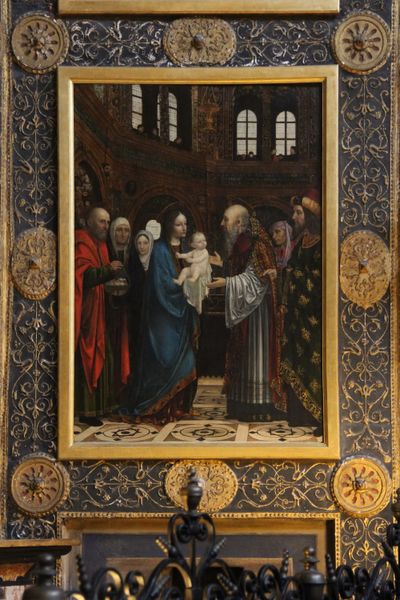
painting, ceramic, fresco
#
painting
#
ceramic
#
figuration
#
fresco
#
history-painting
#
italian-renaissance
Dimensions: height 52 cm, width 39 cm, depth 3.7 cm
Copyright: Rijks Museum: Open Domain
Francisco Niculoso created this tin-glazed earthenware tile panel depicting the Visitation, but we don’t know exactly when. What is the cultural context for this type of image, and how did that context shape its production? The subject of the Visitation, where Mary visits her cousin Elizabeth, was very popular in Renaissance Europe. This image is a copy of an engraving by the German artist Martin Schongauer, evidence of a Europe-wide visual culture enabled by printmaking. However, the use of tile as a medium gives it away as a Spanish or Portuguese product, and that creates a new layer of cultural meaning. The technique of decorating tiles with tin glaze was adopted in Iberia from the Islamic world. This panel reflects the hybrid cultures of Spain and Portugal, where Italian Renaissance imagery was combined with Islamic craft techniques. To understand the social and cultural history of this work, we need to research the global trading networks that made these hybrid forms possible. We could also study the role of religion in shaping social identity in the Iberian Peninsula. In this way, we can see how tile panels like this one reflect the complex cultural encounters of the early modern world.
Comments
No comments
Be the first to comment and join the conversation on the ultimate creative platform.
